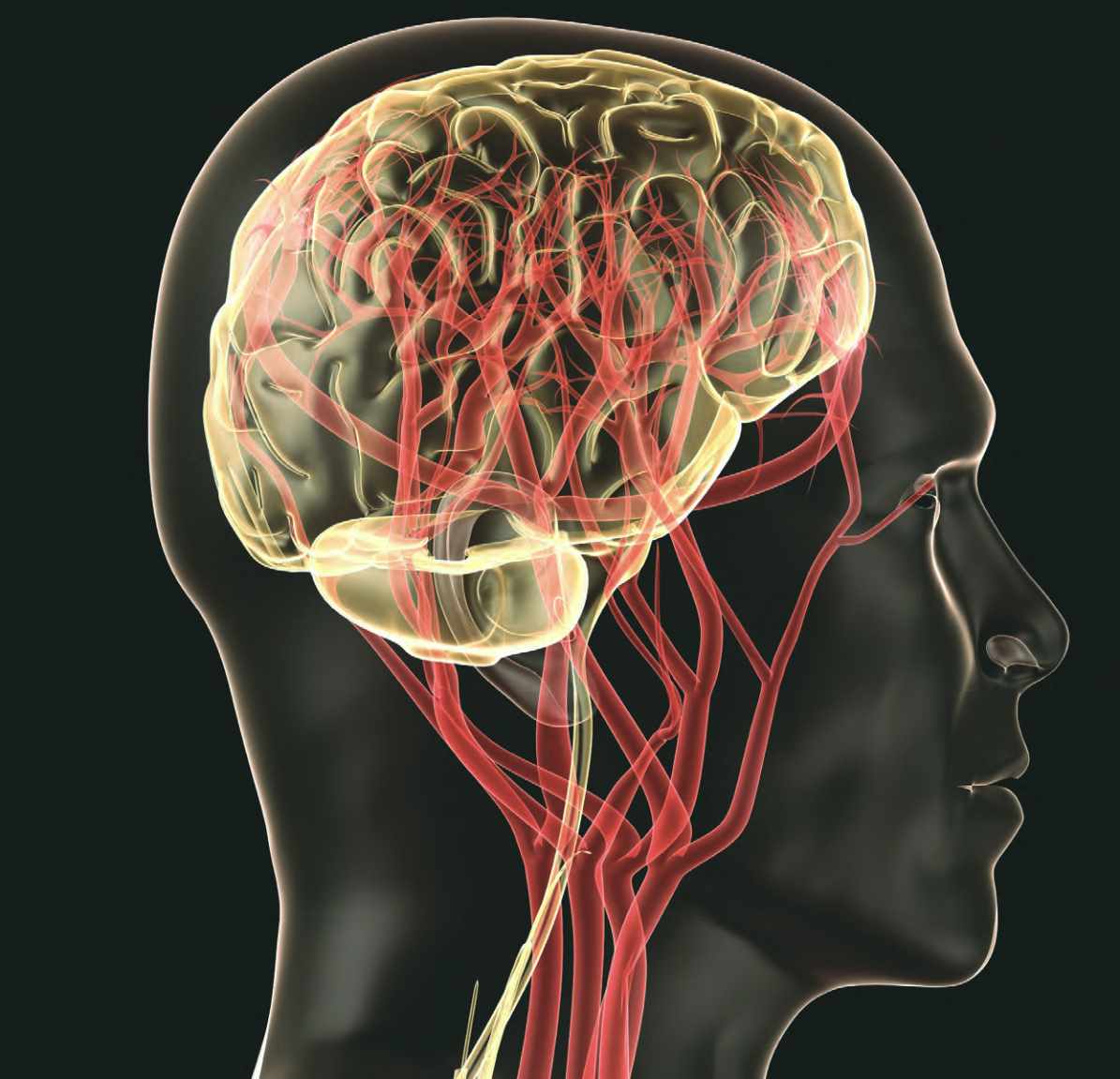BRAIN-BEHAVIOUR CENTRE
Overview
Vision
Aims
Methods
Staff
Positions
Contact us
Acknowledgements

(1) Overview
The Brain-Behaviour Centre (CBB) is a multi-disciplinary, UCT-accredited collaborative hub of psychiatric neuroscience research. It focusses on work particularly relevant to the South African and African context, and comprises three interlinked Groups:
(1) Psychiatric Neurogenetics
(2) Psychiatric Neuroimaging
(3) Translational Neuroscience
The CBB uses a range of methods, including neurogenetics, neuroimaging, and animal models, with the aim of ultimately advancing diagnostic tools and treatments for people with mental disorders.
Post-Doctoral graduates and Doctoral students who would like to become involved in the CBB should contact A/Prof P Naude for additional information.
(2) Vision
To comprise a Unit of Excellence in brain-behaviour studies, to contribute to global efforts in the area, to lead work on problems that are particularly relevant to the developing world, and to support the strengthening of basic and clinical neuroscience at UCT.
(3) Aims
Each of the CBB Groups houses a number of ongoing collaborative projects, all of which are focused on the common theme of psychiatric neuroscience.
Specific aims of the CBB are:
(i) To bring together expertise in psychiatric neurogenetics, psychiatric neuroimaging and translational neuroscience.
(ii) To apply these psychiatric neuroscience research approaches to areas of particular relevance to the developing world and South Africa.
(iii) To encourage Masters, Doctoral and post-Doctoral students with an interest in brain and behaviour studies.
(4) Methods
The CBB collaborates with a broad range of Universities locally, in Africa, and across the world. Many projects nested within the CBB are supported by the South African Medical Research Council (SAMRC), while individual grants have been given by local science councils (eg. SAMRC, NRF, HSRC), international grant agencies (eg. NIH, NARSAD), and private donors (eg. Gates Foundation, NeuroGAP).
(5) Positions
Doctoral positions
The CBB currently has positions available for post-Doctoral and Doctoral students. Interested students should contact A/Prof N Naude.
CBB Post-Doctoral Fellowship
Requirements
Applicants for the CBB Post-Doctoral Fellowship must have completed a PhD degree in a foundational discipline relevant to brain-behaviour studies (eg. psychiatry, psychology, neuroscience, genetics) within the last 5 years, and who have not yet held any permanent or professional posts.
Applicants should have strong interpersonal skills, and be able to work in a collaborative fashion as part of a multi-disciplinary team.
Tenure of Fellowship
1 year, with renewal subject to available funds and satisfactory academic progress.
Value of Fellowship
Salary will be commensurate with the applicant's qualifications and research experience. Application for tax exemption will be made by the University on behalf of the successful candidate.
Applicants should send a copy of their CV, as well as a one-page outline of potential research directions, to A/Prof P Naude. Successful applicants will be required to comply with the University's approved policies, procedures and practices.
Brain and behaviour courses
A number of courses are available in the Department of Psychiatry and Mental Health for students who want to become involved in brain-behaviour research. These include an MMed Sci degree with a focus on neuroscience, the MA Psychol Research, an MSc through the Faculty of Science, as well as various M Phils through the Department of Psychiatry and Mental Health.
The MSc(MED) in neuroscience is by dissertation only. However, students may be required by their supervisors to attend relevant parts of the BSc(MED)(HONS) in physiology (neuroscience) techniques course and/or 3-week theoretical modules on topics such as neuroanatomy, memory & learning, neurodegenerative diseases etc. Interested parties should contact A/Prof P Naude.
Joint appointment posts (PGWC with UCT and Stellenbosch University) provide the opportunity for clinical-academic careers - please see the UCT Psychiatry and Mental Health Department website for more details.
(6) Contact us
Should you have any queries regarding the CBB, or should you wish to join the CBB mailing list, please do not hesitate to contact Shuretta Thomas.
(7) Acknowledgements
The CBB acknowledges support from the following bodies:
* The University of Cape Town for funding and support
* The SAMRC for funding
* The NRF, HSRC, and NIH for individual grants to participating Principal Investigators in the CBB
* The Provincial Government of the Western Cape for its support for participating clinicians in the CBB
Director
The Neuropsychiatric Genetics in African Populations (Neuro-GAP) programme is an ambitious, multi-country project aiming to improve and achieve equity in mental health by expanding the infrastructure and research findings from large-scale psychiatric genetic epidemiology to Africa (click for more information). As there have been no large-scale studies on the genetics of neuropsychiatric disorders in African populations to date, this project addresses a key gap in the field. Specific research objectives are:
- To expand knowledge of the genetic and environmental risk factors for schizophrenia, bipolar disorder and autism in Africa through large-scale sample collection, analysis and follow-up.
- To increase understanding of the genetics of African populations.
- To enhance neuropsychiatric genetic research capacity in Africa through the training of scientists and to support the development of locally led research programs.
Psychiatric Neurogenetics
The Psychiatry Neuroimaging Group (PNG) (http://dev.png.uct.ac.za) was recently established to help raise the profile of psychiatric neuroimaging research at UCT. The PNG’s core team includes investigators with expertise in a variety of neuroimaging techniques, including functional magnetic resonance imaging (MRI), magnetic resonance spectroscopy (MRS), structural MRI, diffusion tensor imaging, and resting state fMRI.
Large collections of brain imaging data are increasingly being made available to the global neuroimaging community as part of international research collaborations. The PNG aims to foster true “bench-to-bedside” clinically relevant research by helping investigators take advantage of these datasets. This will also add value to pre-existing collaborations between PNG members and projects such as the Enhancing Neuroimaging Genetics Through Meta-Analysis (ENIGMA) initiative (http://enigma.ini.usc.edu/). By facilitating access to these data, local researchers will for the first time be able to investigate common imaging markers across multiple psychiatric disorders, including schizophrenia, obsessive-compulsive disorder and neuroHIV. Within the context of the BBU, greater collaboration with initiatives such as ENIGMA will help pave the way for future studies that are relevant to the diverse clinical population in South Africa.
Psychiatric Neuroimaging - Contacts
The Translational Neuroscience (TNS) group studies mechanisms involved in the neuropsychobiology of non-communicable and communicable disease. This group uses a translational research approach that includes the use of animal models and clinical research studies. A wide range of cutting-edge techniques are applied to address research aims, including multimodal imaging as well as laboratory-based neurochemical and neuroimmunological markers. Ultimately, this group aims to improve diagnostics and prognosis of individuals with mental disease/disorder by understanding the relevant neuropsychobiological underpinnings.
Current research includes the application of diverse translational neuroscience techniques to endemic and severe mental disorders, including psychotic disorders such methamphetamine-induced psychosis, schizophrenia, and bipolar disorder; infectious diseases such as neuroHIV; and early developmental stressors (eg. maternal distress and pre-natal exposure to illicit substances) that are known to increase the likelihood of mental disorders.
The Translational Neuroscience - Contacts
Evidence based psychopharm:
Although there have been important advances in effective and cost-efficient treatments for mental disorders, clinician-friendly syntheses of the evidence are needed, and in particular, in low- and middle-income countries. The evidence based psychopharm project extends this work by expanding and synthesizing this evidence-base to increase the representivity of such work and management; busy clinicians cannot digest all the literature and must rely on rigorous evidence-based reviews and guidelines.
Working with researchers from Uganda, the specific research objectives are:
1) To strengthen knowledge about and the ethos of evidence-based mental health;
2) To build capacity in evidence-based innovative methodologies; and
3) To provide training to clinicians and front-line workers in South Africa and Uganda.
Evidence based psychopharm - Contacts
The Division of Addiction Psychiatry currently benefits from a few key sources of funding, thus being the home of the US Department of State INL-funded South Africa International Technology Transfer Centre (ITTC) (https://ittcnetwork.org/ITTC/ittc-south-africa.aspx), the Western Cape Department of Social Development-funded Postgraduate Diploma in Addictions Care, and the NGAP Senior Lecturer post occupied by Amy Adams. The ITTC provides key links for Division and Department to International teaching and research networks under the International Consortium of Universities for Drug demand Reduction (ICUDDR) (https://icuddr.org), the International Society of Substance Use Professionals (ISSUP) (https://www.issup.net), and the Columbo Plan Drug Advisory Programme (DAP), all of which have seen the Division play a major role in the recent inaugural ADDICTION 2021 Conference. Current research focusses on implementation science investigations for provider capacitation in community-level addictions care around the country, alongside other MMed and MPhil Projects.
The Division provides clinical services and teaching
- Clinical Services largely led by A/Prof Henk Temmingh and Dr Lisa Dannatt: Consultation-Liaison; Addiction Psychiatry; Dual Diagnosis
- Teaching: Undergraduate teaching of medical students; Psychiatry Registrar training; The Postgraduate Diploma in Addictions headed by Fergus Ashburner; MPhil for specialist psychiatrists, PhD (Addictions)
Division members participate in the provision of Technical Assistance through individual and group contributions at local, national, and international level and through the ITTC which is tasked with:
- Supporting the development of national and regional drug and alcohol policies that promote the implementation of evidence-based best practices for substance use prevention, treatment, and recovery services in South Africa;
- Facilitating the uptake of evidence-based best practices for substance use prevention, treatment and recovery services including related health conditions in South Africa through various capacity building interventions across cadre levels and sectors; and
- Assessing and removing barriers to evidence-based best practices for substance use prevention, treatment, and recovery services in South Africa.
Addictions - Contacts
Neuroethics is an increasingly prominent interdisciplinary field that considers the moral, legal and social implications of neuroscience and neurotechnologies. Advances in our understanding of the brain, and our ability to observe and influence it, raise a series of essential ethical and philosophical questions, including debates about personal identity, moral responsibility, consciousness and autonomy, among others. Separately, neuroethics considers responses to, and interpretations of, emerging neuroscientific understanding and neurotechnological interventions among different communities, as well as exploring the distinct ethical issues that arise with regard to brain-related research.
Within the BBU, prominent neuroethical research areas include:
-
- The intersection of global mental health & neuroethics: exploring ethical challenges associated with global mental health research and global mental health care.
- The ethics of enhancement: considering the social and moral implications of pharmacological and other forms of human enhancement.
- Dimensions of moral responsibility: exploring the implications of evolving neuroscientific and genetic understandings of behaviour for questions of personal and legal responsibility.
- Advancing neuroethics in Africa: advancing both the need for, and unique contributions of, neuroethics research concerning and emerging from Africa.










